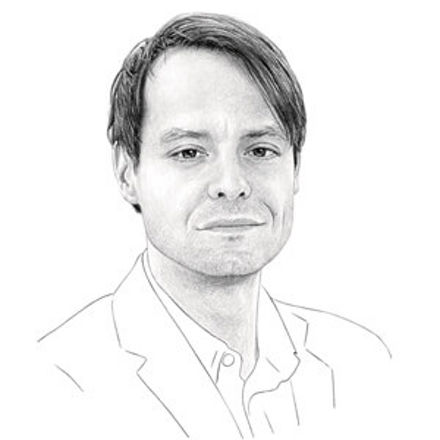Since the beginning of the industrial revolution, human beings have been changing global systems such as the climate and the earth’s surface more than ever before. For example, we are emitting greenhouse gases and releasing long-lived man-made materials such as aluminum and plastics into the environment. Around the beginning of this millennium, the chemist and Nobel Prize winner Paul Crutzen and the biologist Eugene Stoermer proposed a new geological epoch in which human beings have become the biggest influence on the development of the earth’s biological, geological, and climatological conditions. They called it the Anthropocene.
THE VILLAGE OF CENTENARIANS
The longing for eternal life is as old as humankind. The epic of Gilgamesh, which dates back to the second millennium BC, is one of the oldest written records of the human art of poetry. In the epic, King Gilgamesh sets out to find a plant that wards off death. Roughly 1,200 years later, Homer sang of ambrosia, a food that granted immortality and was reserved for the gods of the ancient world. And in the third century BC the first emperor of China, Qin Shi Huang, dispatched his court magician, Xu Fu, to find an herb that prevents aging.
All of these efforts to gain eternal life have ended in failure, but they have yielded valuable insights. In 1878 the Englishman John Biddulph discovered the remote kingdom of the Hunza in the Himalayan mountains, many of whose inhabitants were 100 years old or even older. They owed their longevity not to divine ambrosia but to a mundane diet of dried fruits and nuts. After the Austrian physician Maximilian Bircher-Benner heard of this diet, he invented Bircher müsli.
This was the first time that longevity was linked to a special diet. Additional proof of this connection was discovered about a century later. In the southern Chinese provinces of Guizhou, Sichuan, and Guangxi, scientists observed an unusually high proportion of people over 100 years old. Their investigations revealed that jiaogulan, a plant used by local people to make an herbal tea, was responsible for this longevity. Many positive effects are attributed to this “immortality herb,“ a member of the Cucurbitaceae (cucumber or gourd) family. It is reputed to reduce stress, decrease levels of blood sugar, and strengthen the heart and the immune system.
TARGETED CELLULAR DEATH
Thanks to discoveries like these, today scientists are convinced that diet has a key impact on aging processes. Researchers all over the world are looking for foods that can prolong our lives. For example, researchers at the University of Minnesota are investigating the effects of flavonoids, natural substances that are largely responsible for the colors of flowers and play an important role in the metabolism of many plants. In the course of their research, the scientists discovered fisetin, a yellowish substance that can be found in the Eurasian smoketree as well as in apples, grapes, cucumbers, and strawberries. Scientists suspect that fisetin is a potent senolytic that induces damaged cells to commit suicide—cells that would otherwise cause inflammation and trigger aging processes.
There are other promising candidate senolytics besides fisetin—for example quercetin, another flavonoid that can be extracted from apples, onions, and garlic. Also promising are the alkaloids piperlongumine, which is found in a pepper plant from Southeast Asia, and berberine, a constituent of barberries. None of these active ingredients will bring us immortality. However, it seems that they could enable us to live longer and healthier lives. That’s a good reason for the Foresight team at Creavis to investigate these substances. For example, the incubation cluster “Prevention & Wellbeing” at Creavis aims to develop new health-promoting products.


